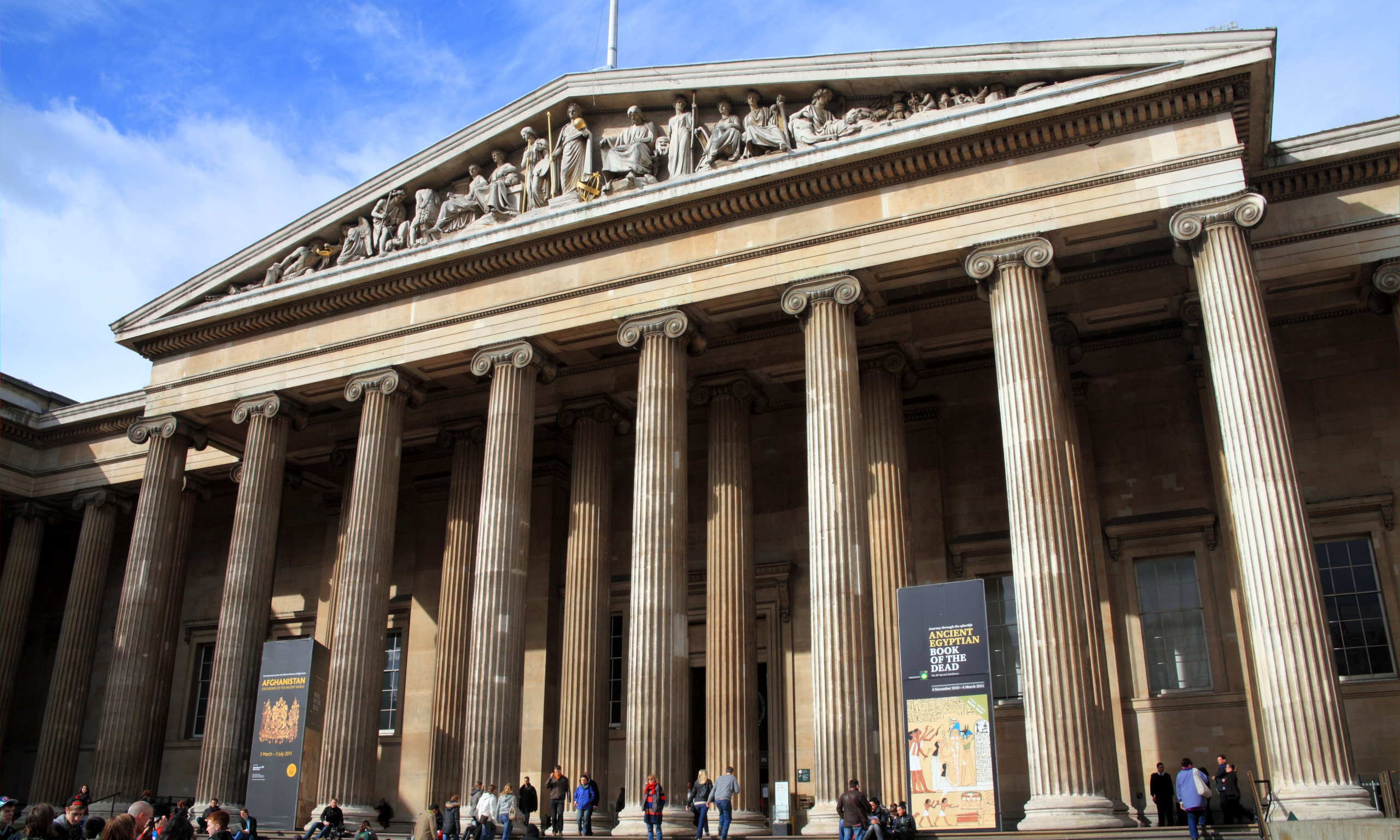Yesterday (6 November), the terms of reference of the review appeared in a relatively obscure section of the museum’s website
Photo: Tony Baggett
The theft of 2,000 Greek and Roman antiquities may have begun as early as 1993 and continued right up until last year. This is suggested in the terms of reference of an independent review, which has been established by the museum’s board of trustees.
The fact that the theft continued for up to 30 years raises highly disturbing issues which need to be addressed in order to restore confidence in the UK’s leading museum.
It was in May 1993 that Peter Higgs began work as a curator in the Greece and Rome department. Although he has been named in the media in connection with the loss, the museum has not identified him. The fact that the terms of reference now state that the “loss and/or damage of the affected objects occurred during the period from 1993 to 2022” is therefore significant. A British Museum spokesperson says that the period is when the suspect was employed and they are unable to comment further when the thefts took place, since this will be investigated further.
A police investigation is underway, but it should be stressed that so far it remains only an inquiry, without an arrest or charges. Higgs‘s family has denied the allegations against him, and his son Greg told the media: “He's lost his job and his reputation and I don't think it was fair. […] I don’t think there is even anything missing as far as I’m aware.”
Although the museum now admits that the thefts continued until last year, in January 2021 Higgs had been promoted to be acting head of his department, a post he held until January 2023. He was dismissed by the museum in July.
Yesterday (6 November), the terms of reference of the British Museum Independent Collection, Security and Governance Review appeared in a relatively obscure section of the museum’s website.
The review now has three co-chairs: Nigel Boardman (former trustee and lawyer), Lucy D'Orsi (chief constable of the British Transport Police) and Ian Karet (lawyer and charity law expert). The three other members are senior BM employees: David Bilson (head of security and visitor services), Mark Coady (head of internal audit) and Thomas Harrison (keeper of Greece and Rome). They will work closely with Mark Jones, who in September was appointed interim director after the resignation of Hartwig Fischer.
The six members of the review team are are now responsible for “identifying a complete list” of the so-called “affected objects”—the museum’s term for the stolen and damaged antiquities. This confirms that the museum has so far been unable to compile a comprehensive listing.
The terms of reference record that “the ongoing detailed audit of affected objects is likely to take longer” than the compilation of the review’s report, suggesting that identifying the losses will be a complex operation.
The review is also responsible for recording “failures of controls, processes or policies” which contributed to the losses and to make recommendations for improvements. Significantly, they will also examine the performance of the board of trustees to examine “whether actions taken or not taken” were reasonable and whether improvements should be made.
It was not until last October that the BM’s board of trustees, chaired by former chancellor of the exchequer George Osborne, received proper information and began to take the allegations seriously. In January 2023, the Metropolitan Police were finally called in to investigate and the Department for Culture, Media and Sport was informed about the gravity of the loss.
The independent review will now liaise with the police. Bilson, the museum’s head of security, is to be responsible for “coordinating support for the criminal investigation”.
Finally, the review will establish and carry out a programme to attempt to recover the antiquities, which may involve “civil litigation against persons suspected of possessing missing affected objects”. This suggests that further recoveries could take a long time.
The report of the independent review is due to be presented to the next meeting of the BM trustees, which is expected to be held in early December. It will also be submitted to the secretary of state at the Department of Culture, Media and Sport, Lucy Frazer, and her permanent secretary, Susannah Storey. This indicates that the issue has caused deep concern to the government.
In the meantime, BM staff and external individuals have a duty of confidentiality in assisting the review. The co-chairs will have “the right of immediate and unrestricted access to all records, assets, personnel and premises” to obtain information. Along with Osborne, the chair of the audit committee of the trustees, Vivian Hunt, will also play an important role in monitoring the review process.
The review report “will be kept confidential”. The museum’s trustees will only be able to publish it in whole or part with the approval of the three co-chairs.

